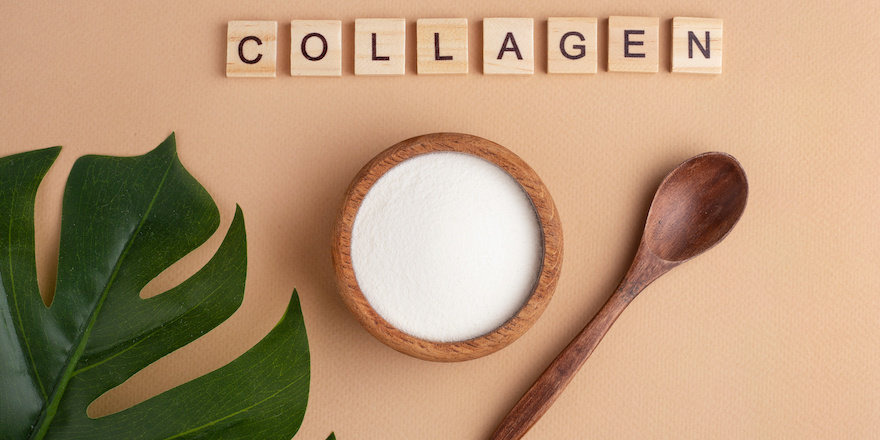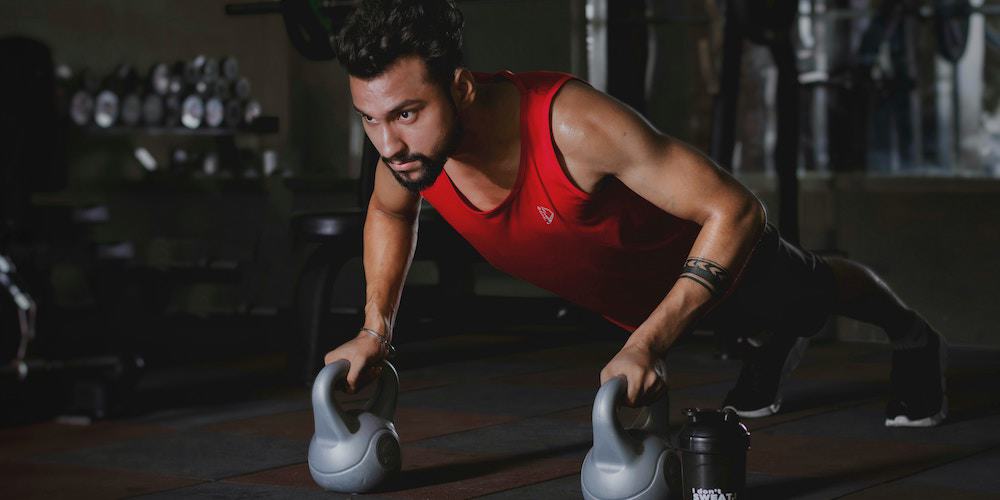Collagen is a fibrous protein essential for the proper functioning of the human body. Naturally abundant in the organism, it plays a structural and resistance role in the majority of tissues.
Bones, joints, skin, blood vessels, muscles, and tendons contain it.
Gradually, its natural production decreases with age, leading to the appearance of joint pain, wrinkles, loss of bone density, and other signs of aging.
Scientific studies have already shown positive effects of collagen dietary supplements for skin and joints.
Do you practice weightlifting? You might be wondering about the benefits of collagen in this sport which puts your muscles, tendons, ligaments, and joints to the test. Here are the recent studies I found on the subject.
Read also | A pharmacist selected the 3 best marine collagens
The benefits of collagen in weightlifting
Collagen and muscle development
Collagen is not the first supplement that comes to mind when seeking to build muscle mass. Whey and creatine take precedence.
And for good reason, it is low in leucine, isoleucine, and valine, the BCAAs renowned in the sports nutrition sphere for their action on anabolism, meaning muscle construction.
However, its composition is rich in glycine and could nonetheless be interesting for promoting muscle building.
This 2022 study notably showed the effects of collagen supplementation on about fifty healthy men, in addition to targeted training to increase muscle mass in the lower body.
After more than 15 weeks of intake, the results are positive compared to the placebo group.
This study seems promising on the effects of collagen to increase muscle mass. Nevertheless, I think further, larger-scale research should be conducted.
Finally, according to this other publication, the effects of collagen on stimulating muscle growth are more visible in men with sarcopenia, which is defined as a condition resulting from the loss of muscle mass and strength.
Read also | How to choose the best whey? Dietitian’s tips
Collagen limits joint pain from sports
Collagen’s action seems much more interesting for limiting joint pain, and this would be its major advantage.
This first study conducted on 147 athletes over 24 weeks showed that adding hydrolyzed collagen peptides to their daily routine supported cartilage health while reducing joint pain.
The results of this research were reaffirmed by this recent review which covers 15 scientific studies.
These beneficial effects of collagen on joints are therefore good news for weightlifting practitioners.

Does collagen reduction present a risk in weightlifting?
It is well-known: with age, collagen synthesis decreases. But it’s not the only factor impacting its production. Among others, sports promote this loss of collagen by increasing oxidative stress, which can affect molecular structures.
With this growing collagen deficit, joint cartilages thin out and can cause joint pains. Bones become less dense, and the resistance and elasticity of tendons and ligaments decrease.
However, collagen is important for these tissues involved in weightlifting. This sport involves repetitive movements and often heavy loads. The pressure exerted on joints, muscles, and ligament structures is considerable.
If these structures are more fragile due to a collagen deficiency, it’s likely to result in a higher risk of injury in weightlifting. Tendinitis, sprains, fractures, muscle tears, and general joint pains are more likely to occur.
If you practice weightlifting after 30, I think supplementation could be useful to protect your tissues.



